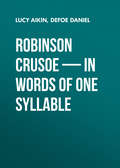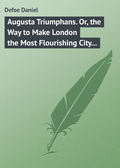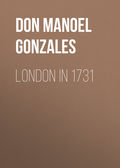
Даниэль Дефо
A General History of the Pyrates: from their first rise and settlement in the island of Providence, to the present time
This Affair ended without any other Consequence than a strict Search after a Brother of Captain Mortimer, who was on Board, in order to have put him likewise to death; but he had the good Fortune to meet with a Townsman among the Crew, who hid him for four and twenty Hours in a Stay-Sail, till the Heat of their Fury was over, and by that Means happily missed of the Fate designed him.
Out of the other Virginia Man before spoken of, they took one Edward Cheeseman, a Carpenter, to supply the Place of their late Carpenter, Fern. He was a modest sober young Man, very averse to their unlawful Practice, and a brave gallant Fellow. There was one John Philmore of Ipswich, formerly taken by them, ordered to row Cheeseman aboard of Mortimer’s Ship, which the Pyrates possess’d themselves of, who, seeing with what Reluctance and Uneasiness Cheeseman was brought away, told him, he would join with him, in some Measures, to over-throw the pyratical Government, telling him withal, their present Condition, what Difficulties Phillips had met with to make up his Company, and how few voluntary Pyrates there were on Board, and the like. But, however specious this seemed, Cheeseman out of Prudence rejected his Offers of Assistance, till he saw some Proofs of his Sincerity, which after a few Days he was convinced of, and then they often consulted; but as the old Pyrates were always jealous of the new Comers, and consequently observant of their Behaviour; this was done with the utmost Caution, chiefly when they were lying down together, as tho’ asleep, and, at other Times, when they were playing at Cards; both which they feigned often to do for that Purpose.
The Pyrates went on all the while, plundering and robbing several Ships and Vessels, bending their Course towards Newfoundland, where they designed to raise more Men, and do all the Mischief they could on the Banks, and in the Harbours.
Newfoundland is an Island on the North Continent of America, contained between the 46 and 53° of N. Latitude, discovered first by St. Sebastion Cabot A. D. 1497, but never settled till the Year 1610; when Mr. Guy of Bristol revived the Affair, and obtained a Patent, and himself to be Governor. The Island is deserted by the Natives and neglected by us, being desolate and Woody, and the Coast and Harbour only held for the Conveniency of the Cod Fishery, for which alone they were settled.
The Bays and Harbours about it, are very numerous and convenient, and being deeply indented, makes it easy for any Intelligence quickly to pass from one Harbour to another over Land; especially the principal, St. John’s and Placentia, when the Appearance of an Enemy makes them apprehend Danger.
They are able to cure and export about 100000 Quintals (100 Weight each) of Fish, annually, which returns to England in Money, or the necessary Commodities of Portugal, Spain and Italy. As it therefore expends abundance of Rum, Molossus and Sugar, the Product of our West-India Colonies, and employs a Number of Fishermen from home every Season, by whose Industry and Labour only this Fish is purchased, it may very well be reckon’d an advantagious Branch of Trade.
But the present Design of this Digression being not to give an exact Description of the Country or Fishery; but rather how it accidentally contributes to raise, or support the Pyrates already rais’d, I shall observe,
First, That our West Country Fishing-Ships, viz. from Topsham, Barnstable and Bristol, who chiefly attend the Fishing Seasons, transport over a considerable Number of poor Fellows every Summer, whom they engage at low Wages, and are by their Terms to pay for Passage back to England. When the Newfoundland Ships left that Country, towards Winter, in the Year 1720, these Passengers muster’d 1100, who, during the Season of Business, (the Hardness of their Labour, and Chilness of the Nights, pinching them very much) are mostly fond of drinking Black Strap, (a strong Liquor used there, and made from Rum, Molossus, and Chowder Beer;) by this the Majority of them out-run the Constable, and then are necessitated to come under hard Articles of Servitude for their Maintenance in the Winter; no ordinary Charge, indeed, when the Barrenness of the Country is consider’d, and the Stock of Provision laid in, happen to fall short, in Proportion to the Computation made of the People remaining there the Winter, which are generally about 17 or 1800. The Masters residing there think Advantages taken on their Necessities, no more than a just and lawful Gain; and either bind such for the next Summer’s Service, or sell their Provisions out to them at extravagant Rates; Bread from 15s. to 50, immediately at the departing of the Ships, and so of other sorts of Food in Proportion; wherefore not being able to subsist themselves, or in any likely Way of clearing the Reckoning to the Masters, they sometimes run away with Shallops and Boats, and begin on pyratical Exploits, as Phillips and his Companions, whom we are now treating of, had done.
And secondly (which is more opportunely for them,) they are visited every Summer, almost, by some Set of Pyrates or other, already rais’d, who call here for the same Purpose, (if young Beginners) and to lay in a Store of Water and Provisions, which they find imported, much or little, by all the Ships that use the Trade.
Towards this Country Phillips was making his Way, and took on the Voyage, besides those abovementioned, one Salter, in a Sloop off the Isle of Sables, which Vessel they made use of themselves, and gave back Mortimer’s Ship to the Mate and Crew. The same Day, viz. the 4th of April, took a Scooner, one Chadwell, Master, which they scuttled, in order to sink; but Capt. Phillips understanding that she belong’d to Mr. Minors at Newfoundland, with whose Vessel they first went off a pyrating, a Qualm of Conscience came athwart his Stomach, and he said to his Companions, We have done him Injury enough already; so order’d the Vessel immediately to be repair’d, and return’d her to the Master.
That Afternoon they chac’d another Vessel, and at Night came up with her, the Master of which was a Saint of New-England, nam’d Dependance Ellery, who taking Phillips for a Pyrate, he told him was the Reason that he gave him the Trouble of chacing so long; which being resented by these Men of Honour, they made poor Dependance dance about the Deck till he was weary.
Within few Days several other Vessels had the same Misfortune, the Masters Names were as follow, Joshua Elwell, Samuel Elwell, Mr. Combs, Mr. Lansly, James Babston, Edward Freeman, Mr. Start, Obediah Beal, Erick Erickson and Benjamin Wheeler.
The 14th of April they took a Sloop belonging to Cape Ann, Andrew Harradine Master; they look’d upon this Vessel more fit for their Purpose, and so came aboard, keeping only the Master of her Prisoner, and sending Harradine’s Crew away in Salter’s Vessel, which they, till this Time, detain’d. To this Harradine, Cheeseman the Carpenter, broke his Mind, and brought him into the Confederacy to destroy the Crew, which was put in Execution four Days afterwards.
Harradine and the rest were for doing the Business in the Night, as believing they might be more opportunely surpriz’d; for Nut, the Master, being a Fellow of great Strength, and no less Courage, it was thought dangerous to attack him without Fire-Arms; however, Cheeseman was resolute to have it perform’d by Day-light, as the least liable to Confusion; and as to the Master, he offer’d to lay Hands on him first: Upon this ’twas concluded on, 12 at Noon was the appointed Time; in order for the Business Cheeseman leaves his working Tools on the Deck, as though he had been going to use them, and walked aft; but perceiving some Signs of Timidity in Harradine, he comes back, fetches his Brandy Bottle and gives him and the rest a Dram, then drank to Burril, the Boatswain, and the Master, To their next merry Meeting, and up he puts the Bottle; then he takes a Turn with Nut, asking what he thought of the Weather, and such like. In the mean while Filemore takes up the Axe, and turns it round upon the Point, as if at Play, then both he and Harradine wink at him, thereby letting him know they were ready; upon which Signal he seizes Nut by the Collar, with one Hand between his Legs, and toss’d him over the Side of the Vessel, but, he holding by Cheeseman’s Sleeve, said, Lord have Mercy upon me! what are you going to do, Carpenter? He told him it was an unnecessary Question, For, says he, Master, you are a dead Man, so strikes him over the Arm, Nut looses his Hold, tumbles into the Sea, and never spoke more.
By this time the Boatswain was dead; for as soon as Filemore saw the Master laid hold of, he raised up the Axe, and divided his Enemy’s Head in two: The Noise brought the Captain upon Deck, whom Cheeseman saluted with the Blow of a Mallet, which broke his Jaw-Bone, but did not knock him down; Harradine came in then with the Carpenter’s Adds, but Sparks, the Gunner, interposing between him and Captain Phillips, Cheeseman trips up his Heels, and flung him into the Arms of Charles Ivymay, one of his Consorts, who that Instant discharg’d him into the Sea; and at the same Time Harradine compassed his Business with the Captain aforesaid: Cheeseman lost no Time, but from the Deck jumps into the Hold, and was about to beat out the Brains of Archer, the Quarter-Master, having struck him two or three Blows with his blunt Weapon the Mallet, when Harry Giles, a young Lad, came down after him, and desir’d his Life might be spar’d, as an Evidence of their own Innocence; that he having all the Spoil and Plunder in his Custody, it may appear, that these tragick Proceedings were not undertaken with any dishonest View of seizing or appropriating the Effects to themselves; which prudent Advice prevail’d, and he and three more were made Prisoners, and secured.
The Work being done, they went about Ship, altered the Course from Newfoundland to Boston, and arrived safe the 3d of May following, to the great Joy of that Province.
On the 12th of May, 1724, a special Court of Admiralty was held for the Tryal of these Pyrates, when John Filmore, Edward Cheeseman, John Combs, Henry Giles, Charles Ivymay, John Bootman, and Henry Payne, the seven that confederated together for the Pyrates Destruction, were honourably acquitted; as also three French Men, John Baptis, Peter Taffery, and Isaac Lassen, and three Negroes, Pedro, Francisco, and Pierro. And John Rose Archer, the Quarter-Master, William White, William Taylor, and William Phillips, were condemned; the two latter were reprieved for a Year and a Day, in order to be recommended (though I don’t know for what) as Objects of his Majesty’s Mercy. The two former were executed on the 2d of June, and dy’d very penitently, making the following Declarations at the Place of Execution, with the Assistance of two grave Divines that attended them.
The dying Declarations of John Rose Archer and William White, on the Day of their Execution at Boston, June 2, 1724, for the Crimes of Pyracy
First, separately, of Archer
I Greatly bewail my Profanations of the Lord’s Day, and my Disobedience to my Parents.
And my Cursing and Swearing, and my blaspheming the Name of the glorious God.
Unto which I have added, the Sins of Unchastity. And I have provoked the Holy One, at length, to leave me unto the Crimes of Pyracy and Robbery; wherein, at last, I have brought my self under the Guilt of Murder also.
But one Wickedness that has led me as much as any, to all the rest, has been my brutish Drunkenness. By strong Drink I have been heated and hardened into the Crimes that are now more bitter than Death unto me.
I could wish that Masters of Vessels would not use their Men with so much Severity, as many of them do, which exposes to great Temptations.
And then of White
I am now, with Sorrow, reaping the Fruits of my Disobedience to my Parents, who used their Endeavours to have me instructed in my Bible, and my Catechism.
And the Fruits of my neglecting the publick Worship of God, and prophaning the holy Sabbath.
And of my blaspheming the Name of God, my Maker.
But my Drunkenness has had a great Hand in bringing my Ruin upon me. I was drunk when I was enticed aboard the Pyrate.
And now, for all the vile Things I did aboard, I own the Justice of God and Man, in what is done unto me.
Of both together
We hope, we truly hate the Sins, whereof we have the Burthen lying so heavy upon our Consciences.
We warn all People, and particularly young People, against such Sins as these. We wish, all may take Warning by us.
We beg for Pardon, for the sake of Christ, our Saviour; and our Hope is in him alone. Oh! that in his Blood our Scarlet and Crimson Guilt may be all washed away!
We are sensible of an hard Heart in us, full of Wickedness. And we look upon God for his renewing Grace upon us.
We bless God for the Space of Repentance which he has given us; and that he has not cut us off in the Midst and Heighth of our Wickedness.
We are not without Hope, that God has been savingly at work upon our Souls.
We are made sensible of our absolute Need of the Righteousness of Christ; that we may stand justified before God in that. We renounce all Dependance on our own.
We are humbly thankful to the Ministers of Christ, for the great Pains they have taken for our Good. The Lord Reward their Kindness.
We don’t Despair of Mercy; but hope, through Christ, that when we dye, we shall find Mercy with God, and be received into his Kingdom.
We wish others, and especially the Sea-faring, may get Good by what they see this Day befalling of us.
Declared in the Presence of J. W. D. M.
CHAP. XVI.
OF
Captain SPRIGGS,
And his CREW
Spriggs sailed with Low for a pretty while, and I believe came away from Lowther, along with him; he was Quarter-Master to the Company, and consequently had a great Share in all the Barbarities committed by that execrable Gang, till the Time they parted; which was about Christmas last, when Low took a Ship of 12 Guns on the Coast of Guiney, called the Delight, (formerly the Squirrel Man of War,) commanded by Captain Hunt. Spriggs took Possession of the Ship with eighteen Men, left Low in the Night, and came to the West-Indies. This Separation was occasioned by a Quarrel with Low, concerning a Piece of Justice Spriggs would have executed upon one of the Crew, for killing a Man in cold Blood, as they call it, one insisting that he should be hang’d, and the other that he should not.
A Day or two after they parted, Spriggs was chose Captain by the rest, and a black Ensign was made, which they called Jolly Roger, with the same Device that Captain Low carried, viz. a white Skeliton in the Middle of it, with a Dart in one Hand striking a bleeding Heart, and in the other, an Hour-Glass; when this was finished and hoisted, they fired all their Guns to salute their Captain and themselves, and then looked out for Prey.
In their Voyage to the West-Indies, these Pyrates took a Portuguese Bark, wherein they got valuable Plunder, but not contented with that alone, they said they would have a little Game with the Men, and so ordered them a Sweat, more for the Brutes Diversion, than the poor Men’s Healths; which Operation is performed after this Manner; they stick up lighted Candles circularly round the Mizon-Mast, between Decks, within which the Patients one at a Time enter; without the Candles, the Pyrates post themselves, as many as can stand, forming another Circle, and armed with Pen-Knives, Tucks, Forks, Compasses, &c. and as he runs round and round, the Musick playing at the same Time, they prick him with those Instuments; this usually lasts for 10 or 12 Minutes, which is as long as the miserable Man can support himself. When the Sweating was over, they gave the Portuguese their Boat with a small Quantity of Provisions, and set their Vessel on Fire.
Near the Island of St. Lucia, they took a Sloop belonging to Barbadoes, which they plundered, and then burnt, forcing some of the Men to sign their Articles, the others they beat and cut in a barbarous Manner, because they refused to take on with the Crew, and then sent them away in the Boat, who all got safe afterwards to Barbadoes.
The next was a Martinico Man, which they served as bad as they had done the others, but did not burn their Ship. Some Days afterwards in running down to Leeward, they took one Captain Hawkins, coming from Jamaica, loaden chiefly with Logwood; they took out of her, Stores, Arms, Ammunition, and several other Things, as they thought fit, and what they did not want they threw over-board or destroy’d; they cut the Cables to pieces, knocked down the Cabins, broke all the Windows, and in short took all the Pains in the World to be Mischievous. They took by Force, out of her, Mr. Burridge and Mr. Stephens, the two Mates, and some other Hands; and after detaining the Ship from the 22d of March, to the 29th, they let her go. On the 27th they took a Rhode Island Sloop, Captain Pike, and all his Men were obliged to go aboard the Pyrate; but the Mate being a grave sober Man, and not inclinable to stay, they told him, he should have his Discharge, and that it should be immediately writ on his Back; whereupon he was sentenced to receive ten Lashes from every Man in the Ship, which was rigorously put in Execution.
The next Day Mr. Burridge, Captain Hawkins’s Mate, sign’d their Articles, which was so agreeable to them (he being a good Artist and Sailor) that they gave three Huzza’s, fir’d all the Guns in the Ship, and appointed him Master: The Day was spent in boysterous Mirth, roaring and drinking of Healths, among which was, by Mistake, that of King George the II. for you must know, now and then the Gentry are provok’d to sudden Fits of Loyalty, by the Expectation of an Act of Grace: It seems Captain Pike had heard at Jamaica that the King was dead, so the Pyrates immediately hoisted their Ensign Half-Mast (the Death Signal) and proclaim’d his Royal Highness, saying, They doubted not but there would be a general Pardon in a twelve Month, which they would embrace and come in upon, but damn ’em if they should be excepted out of it, they would murder every Englishman that should fall into their Hands.
The second of April, they spy’d a Sail, and gave her Chace till 12 o’Clock at Night, the Pyrates believed her to be a Spaniard, when they came close up to her, they discharged a Broadside, with small and great Shot, which was follow’d by another, but the Ship making a lamentable Cry for Quarters, they ceas’d firing, and ordered the Captain to come aboard, which he did, but how disappointed the Rogues were when they found ’twas their old Friend Captain Hawkins, whom they had sent away three Days before, worth not one Penny? This was such a Baulk to them, that they resolved he should suffer for falling in their Way, tho’ it was so contrary to his own Inclinations: About 15 of them surrounded the poor Man with sharp Cutlashes, and fell upon him, whereby he was soon laid flat on the Deck; at that Instant Burridge flew amongst the thickest of the Villains, and begg’d earnestly for his Life, upon whose Request ’twas granted. They were now most of ’em drunk, as is usual at this Time of Night, so they unanimously agreed to make a Bonfire of Hawkins’s Ship, which was immediately done, and in half an Hour she was all of a Blaze.
After this, they wanted a little more Diversion, and so Captain Hawkins was sent for down to the Cabin to Supper; what should the Provision be, but a Dish of Candles, which he was forced to eat, having a naked Sword and a Pistol held to his Breast all the while; when this was over, they buffeted him about for some Time, and sent him forward amongst the other Prisoners, who had been treated with the same Delicacies.
Two Days afterwards, they anchor’d at a little uninhabited Island, call’d Rattan, near the Bay of Honduras, and put ashore Captain Hawkins, and several other Men, (one of them his Passenger) who dy’d there of the Hardships he underwent. They gave them Powder and Ball, and a Musquet, with which they were to shift as they could, sailing away the next Day for other Adventures.
Captain Hawkins, and his unfortunate Companions, staid 19 Days upon this Island, supplying themselves with both Fish and Fowl, such as they were, at which Time came two Men in a Canoe, that had been left upon another marroon Island near Benacca, who carry’d the Company at several Times thither, it being more convenient in having a good Well of fresh Water, and Plenty of Fish, &c. Twelve Days afterwards they spy’d a Sloop off at Sea, which, upon their making a great Smoke, stood in, and took them off; she was the Merriam, Captain Jones, lately escaped out of the Bay of Honduras, from being taken by the Spaniards.
At an Island to the Westward, the Pyrates clean’d their Ship, and sail’d towards the Island of St. Christophers, to wait for one Captain Moor, who commanded the Eagle Sloop, when she took Lowther’s upon the Careen, at Blanco; Spriggs resolved to put him to Death, whenever he took him, for falling upon his Friend and Brother, but instead of Moor, he found a French Man of War from Martinico upon the Coast, which Spriggs not thinking fit to contend with, run away with all the Sail he could make, the French Man crowded after him, and was very likely to speak with Mr. Spriggs, when unfortunately his Main-Top-Mast came by the Board, which obliged him to give over the Chace.
Spriggs then stood to the Northward, towards Burmudas, or the Summer Isles, and took a Scooner belonging to Boston; he took out all the Men and sunk the Vessel, and had the Impudence to tell the Master, that he designed to encrease his Company on the Banks of Newfoundland, and then would sail for the Coast of New-England in quest of Captain Solgard, who attack’d and took their Consort Charles Harris, Spriggs being then in Low’s Sloop, who very fairly run for it. The Pyrate ask’d the Master if he knew Captain Solgard, who answering No; he ask’d another the same Question, and then a third, who said he knew him very well, upon which Spriggs ordered him to be sweated, which was done in the Manner before describ’d.
Instead of going to Newfoundland as the Pyrates threat’ned, they came back to the Islands, and to Windward of St. Christophers, on the 4th of June last, took a Sloop, Nicholas Trot Master, belonging to St. Eustatia, and wanting a little Diversion, they hoisted the Men as high as the Main and Fore Tops, and let them run down amain, enough to break all the Bones in their Skins, and after they had pretty well crippled them by this cruel Usage, and whipp’d them about the Deck, they gave Trot his Sloop, and let him go, keeping back only 2 of his Men, besides the Plunder of the Vessel.
Within two or three Days they took a Ship coming from Rhode-Island to St. Christophers, loaden with Provisions and some Horses; the Pyrates mounted the Horses and rid them about the Deck backwards and forwards a full Gallop, like Madmen at New-Market, cursing, swearing, and hallowing, at such a Rate, that made the poor Creatures wild, and at length, two or three of them throwing their Riders, they fell upon the Ship’s Crew, and whipp’d, and cut, and beat them in a barbarous Manner, telling them, it was for bringing Horses without Boots and Spurs, for want of which they were not able to ride them.
This is the last Account we have had of Captain Spriggs, I shall only add the two following Relations, and conclude.
A Brigantine belonging to Bristol, one Mr. Rowry Master, had been trading at Gambia, in Africa, and falling as low as Cape Mount, to finish the slaving of the Vessel, he had, by a Misfortune usual at that Part of the Coast, his Mate, Surgeon, and two more of his Men, Panyarr’d1 by the Negroes. The Remainder of his Company, which was not above 5 or 6 in Number, took this Opportunity, and seiz’d the Vessel in the Road, making the Master Prisoner.
You will think it prodigious impudent that so small a Number should undertake to proceed a pyrating, especially when neither of them had sufficient Skill in Navigation: Yet this they did, leaving those People, their Ship-Mates abovemention’d, to the Mercy of the barbarous Natives, and sail’d away down the Coast, making them a black Flag, which they merrily said, would be as good as 50 Men more, i. e. would carry as much Terror; and that they did not doubt of soon increasing their Crew, to put them in an enterprizing Capacity; but their vain Projection was soon happily frustrated, and after this Manner.
The Master whose Life they had preserved, (perhaps only for supplying their own Unskillfulness in Navigation,) advised them, that since contrary to their Expectations, they had met with no Ship between Cape Mount, and the Bite of Calabar, to proceed to the Island of St. Thomas’s, where they might recruit with Provisions and Water, and sell off the Slaves (about 70 of them) which they perceived would be a useless Lumber, and incommodious to their Design. They arrived there in August 1721, and one Evening, while Part of them were on Shore, applying for this Purpose to the Governor, and the other Part carelesly from the Deck, Mr. Rowry stepp’d into the Boat belonging to the Vessel, and pushed off, very suddenly: They heard the Noise it made, and soon were upon Deck again, but having no other Boat to pursue, nor a Musket, ready to fire, he got safe on Shore, and ran to the Governor with his Complaint, who immediately imprisoned those already there, and sent a Launch off to take the rest out of the Ship.
The Swallow arrived at St. Thomas’s the Beginning of October following, where, on Mr. Rowry’s Remonstrance, Application was made to the Portuguese Governor of that Island, for a Surrendery of these five English Prisoners then in the Castle; but he not only peremptorily excused himself from it, as a Matter out of his Power, without particular Direction from the Court of Portugal; but withal insinuated, that they had only taken Refuge there from the Hardships and Severity they had met with from their Master. The manner of Denial, and the avaritious Temper of the Gentleman, which I had Occasion to be acquainted with, makes it very suspicious, that he proposed considerable Gains to himself; for if Mr. Rowry had not made such an Escape to him, the Slaves had been his for little or nothing, as a Bribe to silence his Suspicions, which any Man, less acute than he, must have had from the awkward and unskilful Carriage of such Merchants. But enough of this; perhaps he is not the only Governor abroad that finds an Interest in countenancing these Fellows.







